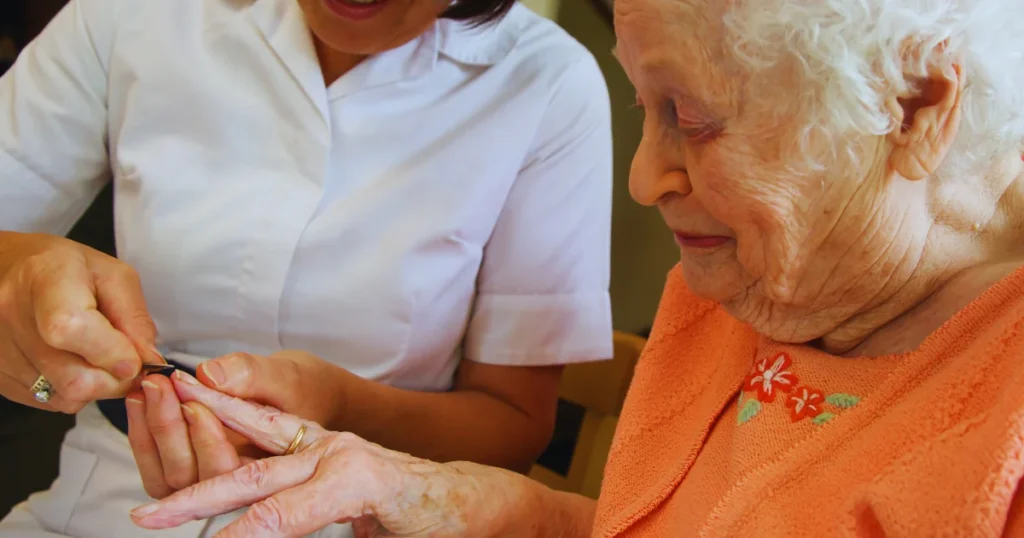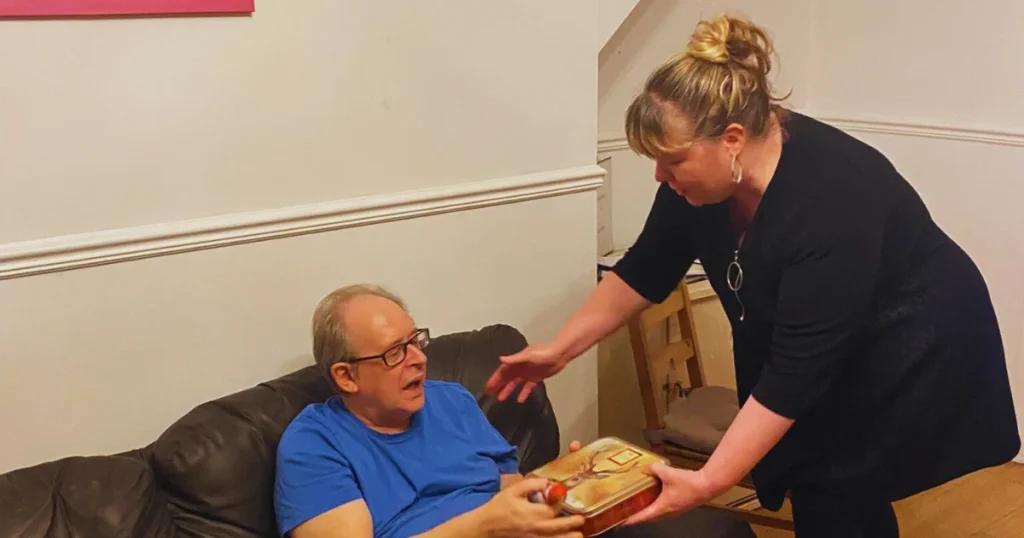Adult day care facilities give older adults a safe place for daytime activities, care, and companionship. They allow family caregivers a break, knowing their loved one is well cared for and engaged. These centres offer different programs, including social activities and, in some cases, medical support.
Table of Contents
What is an Adult Day Care Facility?
An adult day care facility is a safe place for older adults or adults with disabilities to spend the day. It provides care, companionship, and meaningful activities that support well-being. These centres aim to reduce isolation and offer relief to caregivers.

Older adults typically attend on a set schedule and receive a range of services, such as:
- Counselling and Educational Support
- Health Screenings and Exercise Programs
- Meals and Socialisation Opportunities
- Personal Care and Supervision
- Transportation and Medication Management
For additional details on available care, visit Adult Care and Support.
Difference Between Adult Day Care and Home Care
Adult day care and home care for disabled adults offer distinct types of support:
Adult Day Care:
- A day centre for adults with disabilities offers a structured environment for social activities, health support, and companionship, giving participants a safe and engaging space during the day
- Ideal for those who benefit from daily interaction and community support.
Home Care:
- Brings care directly to the individual’s home, assisting with personal care, health needs, and daily tasks.
- Suitable for those who prefer staying in their familiar environment.
Types of Adult Day Care Programs
Adult day care services generally provide 3 main types of programs designed to engage, support, and provide safety for older adults:
- Adult Social Day Care
Social daycare is ideal for adults who are generally healthy but benefit from structured, engaging activities. These centres create a lively atmosphere with games, arts and crafts, gentle exercise, and occasional group outings. They offer basic health services, such as medication reminders and counselling, which can include support groups and educational sessions. Staff help with daily activities, and these centres are usually wheelchair-accessible and equipped for walkers and other mobility aids. - Adult Day Health Care (ADHC)
Day health care centres provide more intense medical and physical support, designed for adults managing long-term health conditions. For example, those recovering from strokes or living with disabilities. With medical staff available, these centres offer services like physical and occupational therapy, daily health check-ups, and symptom management. For many, this care reduces the need for nursing homes, helping participants remain active in the community while addressing essential health needs. - Specialised Dementia or Condition-Focused Programs
These centres cater to adults with specific conditions, such as dementia, Alzheimer’s, or other cognitive impairments. Activities focus on memory care, providing exercises and events that support cognitive engagement and reduce anxiety. Staff receive specialised training, and the facilities are secure to keep participants safe. Some centres even offer sensory activities and pet therapy to create a calm, engaging environment.
Daycare centres usually operate on weekdays. Some extend their hours to evenings and weekends, offering flexible day services for adults with disabilities. This structure provides families with peace of mind, knowing their loved ones have quality care and social engagement options when needed.
Core Services Offered by Day Centres for Adults With Disabilities

The following services are provided as part of a day center program to promote physical health, social connection, and personal care:
- Health and Wellness Support: Regular health screenings and therapeutic activities, including physical and occupational therapy, to support physical well-being.
- Social and Recreational Activities: Engaging games, group outings, and events tailored to stimulate social interaction and mental engagement.
- Daily Living Assistance: Personal care, including help with grooming, toileting, and supervision, ensuring participants’ safety and comfort.
For more details, see Supported Living for Adults with Learning Disabilities.
Who Can Benefit from Adult Day Care?
The benefits of adult day care centers vary depending on which group they serve, catering to both participants and caregivers. Here are some examples:
Older Adults:
- A safe and welcoming place for social activities and connection.
- Enjoyment of group events and friendships to ease loneliness.
- Gentle physical and mental exercises to support well-being.
- Regular health check-ins and help with personal care.
Adults with Disabilities:
- Structured programs to encourage independence and skill-building.
- Inclusive activities that support varied abilities.
- Supervised care and assistance with daily needs.
- Opportunities to build friendships in a supportive environment.
Family Caregivers:
- Time to rest, attend to work, or personal tasks.
- Peace of mind knowing their loved one is engaged and cared for.
- Reduced stress from 24/7 caregiving.
- Access to support and advice from professional caregivers.
Common questions about adult day care
When to Consider Adult Day Care
The following are common signs of learning disability in adults:
- Difficulty reading, writing, or spelling
- Struggles with time management and organisation
- Trouble remembering instructions or information
- Challenges with maths, calculations, or following sequences
- Issues with social interactions or understanding cues
- Difficulty with motor skills, coordination, or physical tasks
- Challenges in focusing, especially on complex tasks
If these signs are present, consider contacting a healthcare professional for a medical diagnosis to better understand and address these needs.
Cost and Financial Assistance Options
According to Cornwall Council, daycare in the UK typically costs between £30 to £60 per full-day session, averaging around £43, though specialised services may be higher. Financial assistance options are available through government programs, such as council subsidies and assessments for those who qualify. Costs vary by location and the level of care required.
Here’s a simplified chart for reference:
| Service Type | Description | Cost Range |
| Standard Day Care | General day services including meals and activities | £30 – £60 per day |
| Specialised Day Care | Enhanced support for specific conditions, such as dementia | £60+ per day |
| Average Full-Day Rate | Typical daily rate for general services | Around £43 |
| Additional Services | Personal care, transportation, and extended hours | Varies, often added fees |
Conclusion
Adult day care facilities offer a warm, safe environment that supports social connections, daily care, and mental and physical well-being. For families, they bring peace of mind, knowing their loved ones are cared for in a community setting.
These centres provide a valuable alternative, helping participants maintain independence and quality of life while giving caregivers a well-deserved break. To explore how adult day care might meet your family’s needs, visit Metro Care UK for more information.
FAQ
What is an adult day care facility?
An adult day care facility is a safe, supportive place for older adults or those with disabilities to spend the day. These centres provide social activities, meals, personal care, and basic health support, creating a warm environment for participants.
Who can benefit from adult day care services?
Adults needing socialisation, companionship, or health assistance benefit greatly from these services. Family caregivers also find respite, allowing them to rest or focus on work while knowing their loved ones are well cared for.
How much does adult day care cost?
Costs vary, typically between £30-£60 per day, depending on the centre and services offered. Additional services, like specialised care or extended hours, may incur extra charges. More on costs here.
Are meals included in adult day care programs?
Yes, most centres provide nutritious meals and snacks throughout the day, often dedicated to meeting individual dietary needs. Meals are part of the program to support participants’ health and well-being. For more information, visit Adult Care and Support.

